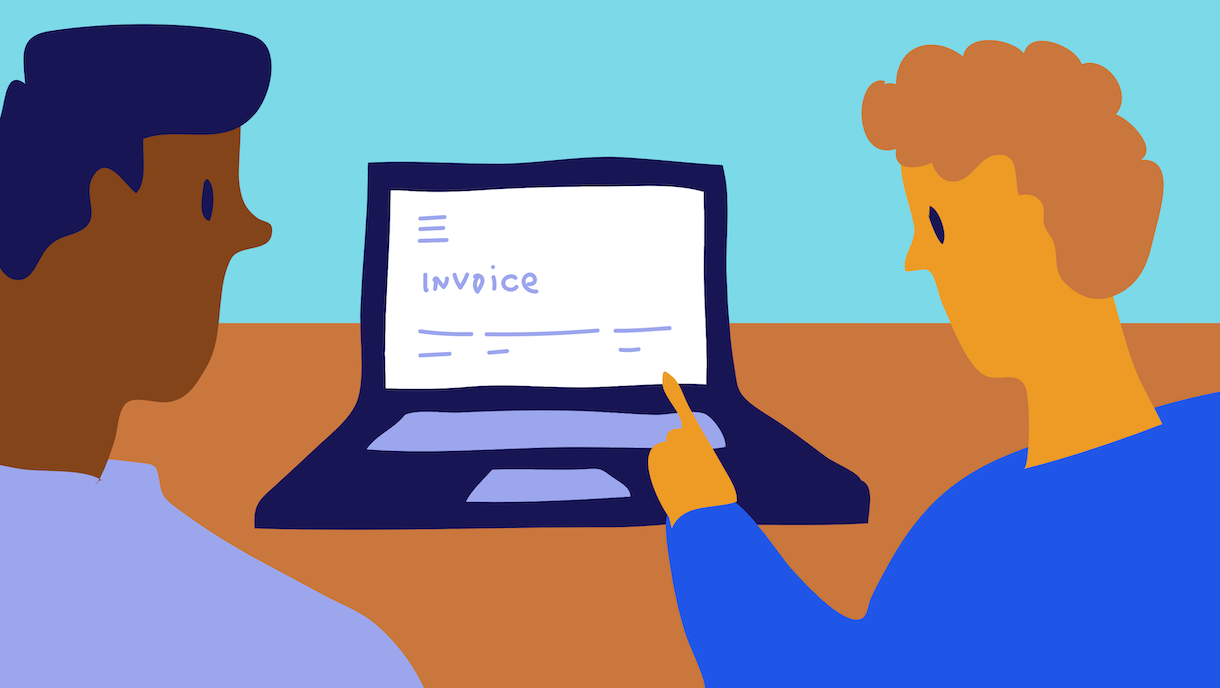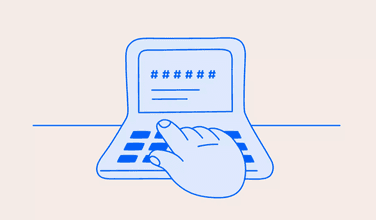A Complete Guide To Ecommerce Accounting
Master ecommerce accounting with Osome’s comprehensive guide, covering bookkeeping, taxes, and more. Unlock financial insights to grow your online business and ensure compliance. Small business owners, don't miss out! Read the full article and elevate your financial game today.

Accounting for online sellers covers bookkeeping, tax, invoice management and more. It may be one of your least favourite tasks when running your ecommerce business, but it’s one of the most vital.
Having a good grip on your finances gives you the insight you need to run your online business effectively – and provides peace of mind.
Are you an online seller? Here’s everything you need to know about setting up accounting for all types of ecommerce companies.
Skip to:
What Is Ecommerce Accounting?What Is the Difference Between Ecommerce Accounting And Bookkeeping?
Why Accounting Is Important For Ecommerce
Four Ecommerce Accounting Terms You Should Know
Things You Need Before Starting With Ecommerce Accounting
Business Bank Account Types
The Two Types of Accounting for Your Ecommerce Business
Types Of Financial Statements
Ecommerce Accounting Tasks
How to Make Payments: The Best Ecommerce Payment Gateways
Choosing An Ecommerce Cloud Accounting Solution
When Is It Time To Hire An Accountant For Your Ecommerce Business?
FAQs
What Is Ecommerce Accounting?

Accounting for ecommerce involves reporting your business’s financial activity. Ecommerce accounting includes bookkeeping, management reports and tax filing, which needs to be done so that your business remains compliant.
At Osome, we offer accounting for online sellers using the top ecommerce platforms – including Amazon, Shopify, Etsy and others – helping them to grow through smart accounting and financial insights.
What Is the Difference Between Ecommerce Accounting And Bookkeeping?
Bookkeepers record your ecommerce company’s day-to-day financial transactions. Ecommerce accountants analyse, interpret and report financial performance. Ecommerce accounting gives insights into your business’s financial health based on bookkeeping data.
Both are essential elements of running your business; business owners need accurate data to produce the reporting and develop the insights they need to run their company.
Why Accounting Is Important For Ecommerce
Accounting for ecommerce companies is vital to understand cash flow and profitability. You need a robust system in place to manage your incomings and outgoings. That information allows you to understand your business’s performance and tax liability.
Accounting will help build a financially reliable and stable business
If you keep clear records and reconcile all your transactions regularly, your ecommerce accountant will be able to spot any errors when they occur. You’ll be able to rely on cash flow forecasts and not be met with any unpleasant surprises.
Knowing how much cash you’re going to have available also gives you the ability to know when you can invest and take advantage of opportunities.
Accounting will help you forecast
Having a clear idea of your business’s financial situation allows you to look ahead and predict future activity. This means you can budget your spending and plan for the future. Critically, you can understand how the business can grow so that you can make the right decisions.
A good accounting system ensures your tax returns are straight forward
Thorough bookkeeping and accounting mean you’ll be prepared with all the information you need when filing your taxes. It also allows your accountant to identify where you might make tax savings.
Four Ecommerce Accounting Terms You Should Know

Purchase Order
A customer creates a Purchase Order (PO) and shows their intention to purchase goods or services from a seller. If a client shares a PO number with you, it should be included on your invoices so it’s easy for them to keep track.
Sales Order
An online seller creates a sales order to confirm they can provide the goods or services a customer requests.
Invoice
An invoice provides proof of purchase of your goods or services to your customers and requests payment. Invoices are issued before payment is received. Learn what to include in an ecommerce invoice in our guide.
Receipt
This is a paper or electronic record of a transaction that is generated and given to the customer when a sale is made. Receipts are issued after payment is received.
Things You Need Before Starting With Ecommerce Accounting
To get started with ecommerce accounting, you’ll need three things:
Unique Tax Payer Reference
HMRC automatically assigns all companies registered in the UK a 10-digit Unique Taxpayer Reference (UTR). Your accountant will then need to use this number in any correspondence with HMRC, submitting company accounts, or paying Corporation Tax.
An accounting solution
Accounting software like Osome can save you time on crucial business processes. You’ll find hints and tips throughout this article on choosing the right ecommerce accounting solution for your business.
Business bank account
Finally, you’ll need a business bank account, which you can read more about below.
Business Bank Account Types

Business current account
With a business current account, you can withdraw or deposit cash and make payments using a debit card. You can also accept incoming payments, transfer money and set up standing orders or direct debits. Some banks charge fees for their business accounts.
Business savings account
A business savings account allows you to set aside spare cash for a later date while earning interest on it. There are different types of business savings accounts, and which you choose depends on your business circumstances.
- Easy access: Few or no restrictions on when you can deposit or withdraw money.
- Notice: Choose a notice period when opening the account and give the bank that notice before withdrawing money.
- Fixed-rate: Lock away money for a specified time and get a fixed interest rate.
The Two Types of Accounting for Your Ecommerce Business

Cash-based accounting
If you recognise revenue when you receive cash and expenses when you pay them, you should use cash-based bookkeeping. This means you record cash entering and leaving your accounts in your books. Cash-based accounting works best with single-entry bookkeeping.
Accrual-based accounting
If you recognise revenue when it’s earned and recognise expenses when they’re incurred, you should use accrual-based bookkeeping. This means cash doesn’t have to enter or leave your accounts for you to record transactions so that you can recognise sales and purchases on credit immediately. Accrual-based accounting works best with double-entry bookkeeping.
Types Of Financial Statements
Cash flow statement
A cash flow statement is one of the critical reports used to measure a business’s performance. It helps in making forecasts for short and medium-term planning. A cash flow statement shows incomings and outgoings and the source of cash from operating activities, investment activities and financial activities over a set period.
Balance sheet
A balance sheet is another of the key reports on company performance. It shows a business's assets, liabilities and shareholder's equity at a set point in time. It gives an overview of what your business owns, what it owes, and any amount invested. A balance sheet shows you your business’s worth so that you can understand its financial position.
Income statement
An income statement is a profit and loss or earnings statement. It shows a business’s revenue, expenses and profitability over some time. An income statement is the final key report of a company’s performance. It ultimately shows how profitable, efficient and sustainable a company is and is incredibly useful for planning.
Ecommerce Accounting Tasks
Keep accurate bookkeeping records for your ecommerce store
This includes receipts, bills, bank statements, assets and stock. Here’s a helpful guide on what records to keep.
Categorise every transaction, from sales to expenses
Mark every transaction that goes through your business as an income or expense, and label it based on type. Osome accounting software will automate this process for you.
Distinguish between returns and chargebacks
Returns are refunds that should be subtracted from your revenue. Chargebacks happen when a customer disputes the charge with their bank - these should also be categorised as returns, though any fees incurred can be marked as a business expense.
Reconcile bank statements
Reconcile bank statements with your bookkeeping records to pinpoint discrepancies. This allows you to be certain that money has been present in your business.
Manage inventory
Manage how much stock you have and will need based on stocktakes, your budget and projections.
Keep track of cash flow
To budget effectively, note when and where your money goes out regularly and how much comes in. Record all your recurring spending and factor in unplanned expenses, so you can understand how much you need to break even every month. Ensure you set income aside to cover any fluctuations in revenue.
Produce and analyse financial statements
These statements include a cash flow statement, balance sheet and income statement. These equip you with the financial knowledge to make smart business decisions.
File and pay taxes
Your small business must file returns and pay taxes on time to remain compliant. A specialist ecommerce accountant can take care of this for you.
How to Make Payments: The Best Ecommerce Payment Gateways
You need to offer your customers an easy way to pay. An ecommerce payment gateway is a way for your store to process card payments. The most popular payment gateways are:
- Paypal
- Stripe
- Worldpay
- Shopify
- Opayo
- Klarna
- Square
- Amazon
The one you choose will be determined by where you sell (as some payment gateways only support certain countries), what you sell (as some payment gateways won’t work with businesses selling highly regulated products) and how it will integrate with your accounting software. Osome integrates with Amazon, Shopify, Square, Stripe and more.
Choosing An Ecommerce Cloud Accounting Solution
When choosing the right ecommerce accounting solution, you must look for software that meets your small business’s needs. If you sell via different platforms, you’ll need consolidated reports that show the different data. If you sell in multiple countries, you must report for VAT in each location.
Follow this checklist:
- Is the software easy to use?
- Does it integrate with your business bank account?
- Does it integrate with your key business software?
- Is it secure and encrypted?
- Is it within budget?
- Does it offer customer support?
Osome is your personal accounting assistant, providing dedicated support around the clock. We offer a personal accountant, integration with your sales platform, VAT reports, and more — all with affordable pricing.
See how Osome compares against the other best ecommerce accounting solutions here.
When Is It Time To Hire An Accountant For Your Ecommerce Business?
Ask yourself these questions:
- Is my business growing at a fast pace?
- Are there lots of other demands on my time?
- Do I feel out of my depth when it comes to accounting?
- Are financial tasks starting to build up?
Seems like it’s about time…
If the answer to these questions is yes, then it’s time to hire an accountant for your ecommerce store.
FAQs
Which accounting software is best for ecommerce?
The best software for your ecommerce store is the one that makes your life easier. Look out for one that handles bookkeeping, inventory management and payroll, with multi-currency support and monthly reports. Osome ecommerce offering does all that and more.
How do you record ecommerce sales?
You can keep track of all your sales transactions in a spreadsheet or via accounting software, which will record and categorise ecommerce sales for you automatically if integrated with your ecommerce platform.
Do you need an accountant for an online business?
Unless you have time to take care of your own accounting activity, it helps to have dedicated support. If your business is growing rapidly and you need more knowledge and time, it makes sense to hire an accountant for ecommerce.
How do I start online business accounting?
Brush up on the bookkeeping basics. Choose an inventory accounting method and either cash or accrual-based accounting. Keep an eye on cash flow and regularly complete bank reconciliations. You can start financial forecasting and reporting when you’ve got that in order. Sound like too much? Outsourcing ecommerce accounting might be the answer.
What is an ecommerce transaction?
An ecommerce transaction is the purchase or sale of goods or services that take place online.







